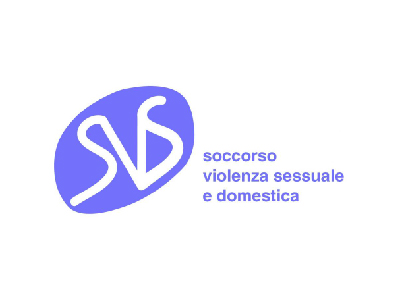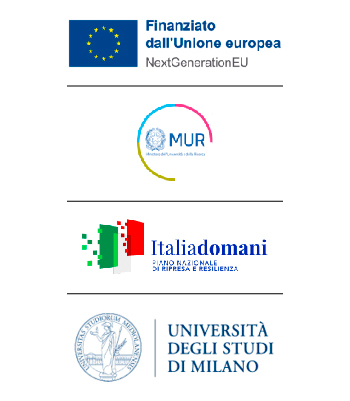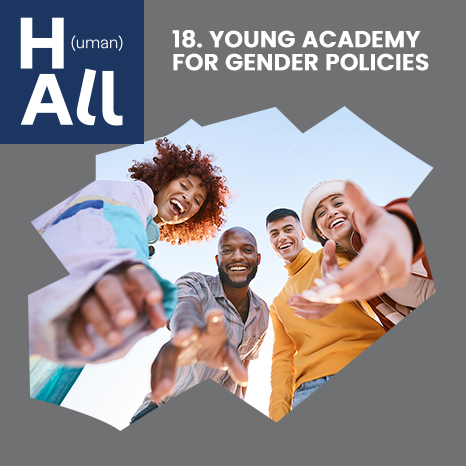GENDER EQUALITY AND VIOLENCE AGAINST WOMEN
In Italy gender-based violence is a real emergency: 2022 registered 125 cases of femicide, 103 of which in a family environment or in a sentimental situation. The focus of this project is to introduce actions against gender-based violence, to deepen the analysis of this phenomenon through the collection of data in the area of Milan, and to promote advanced training courses for magistrates, teachers and sector operators.
The project aims to raise awareness about the false stereotypes of gender-based violence and secondary victimization among young people, this with the making of a compendium for the Middle-School-Students.
TEAM
Violence against women: the book to deepen the legal problems of a phenomenon that doesn’t knows inflections
Notwithstanding the progress, also thanks to the many legislative attendances, the situation of violence against women in Italy remains dramatic. The book “Violence against women” stands as a deep analysis starting from the reflections of some constitutional law scholars on the main legal problems of the phenomenon.
Edited by: Marilisa D’Amico, Costanza Nardocci, Stefano Bissaro

Dictionary on stereotypes associated with gender-based violence and secondary victimisation

The Dictionary on Stereotypes Associated with Gender Violence and Victimisation
secondary school students is aimed at secondary school students,
presenting with a simple and direct, but not simplistic way, some of the main stereotypes
associated with gender-based violence and secondary victimisation, in order to stimulate independent critical thinking. The language, style and graphic illustrations are intended to convey with direct and light-hearted manner an informative message aimed at raising awareness of the pervasiveness and danger of erroneous stereotypes that undermine the credibility of victims, justify perpetrators and make our society more unequal.
Edited by: Anna De Giuli – Irene Pellizzone – Francesca Poggi
WHAT DO WE DO
INITIATIVES
STEREOTYPES AND GENDER-BASED VIOLENCE
Interview with Francesca Poggi, full professor of Philosophy of Right

What is the role of stereotypes in today’s hyperconnected world?
Stereotypes are behaviors, attitudes, roles that are given to a person just because he or she belongs to a specific group of people. Actually, they are not something negative: the stereotype is an epistemological category that helps us to interact with unknown people. For instance, if I have to buy a present for a colleague that I don’t know that much, it’s highly probable that I’ll give them a book. If the present is for a five-year-old-child, maybe I’ll choose a toy. What drives my choice is the group in which I identify my subject. However, socially speaking, stereotypes can become a problem, causing discriminatory effects, especially when we speak about women.
Why one of the goals of the project is the realization of a compendium about gender stereotypes?
To fight in a light way and with a simple language complex themes such as gender-based violence and secondary victimization. Every word in the compendium is associated with a stereotype that affects the woman as a victim and so, punishable with violence: starting from the stereotypes about male jealousy, which try to justify their behavior, to the one of absolutized love.
Why did you choose middle-school-students as your target?
Because stereotypes and gender-based violence are structural issues able to express the balance of powers in a society. Being them structural, they have to be fought mainly at an educational level. During the middle school, boys and girls are already able to understand these topics, but they haven’t taken a stand yet.
How much is important for such a project to be part of a multidisciplinary hub?
A lot, since the projects are closely related to each other. For example, the task about Women and work deals with the same stereotypes that we can find when we speak about gender-based violence. The projects about migration are closely related to those women who are exposed to gender violence too. These women cannot speak the language, they don’t work because of cultural reasons, and so they are isolated from their new society. This is why an integrated approach is fundamental.
Quale il ruolo degli stereotipi in un mondo iper connesso?
Gli stereotipi sono atteggiamenti, attitudini, ruoli che vengono attribuiti a una persona solo in quanto appartenente a un certo gruppo. Non sono di per sé negativi: lo stereotipo è una categoria epistemologica che ci aiuta nelle interazioni con persone che non conosciamo. Ad esempio, se dovessi fare un regalo a un mio collega che non conosco bene, è probabile che gli regalerei un libro. Se invece il regalo è per un bambino di cinque anni, probabilmente sceglierei un giocattolo. Mi faccio guidare dal gruppo a cui quella persona appartiene. A livello sociale, però, gli stereotipi possono diventare un problema, con effetti ghettizzanti e discriminatori, molti dei quali associati alle donne.
Perché tra gli obiettivi del progetto c’è un breviario sugli stereotipi di genere?
Per contrastare, in modo fruibile e leggero, con un linguaggio semplice, temi complessi come la violenza di genere e la vittimizzazione secondaria. Ogni lemma del breviario è associato a uno stereotipo, che incide sulla strutturazione della donna quale vittima e dunque passibile di violenza: dagli stereotipi sulla gelosia maschile, che ne giustificano gli atteggiamenti, fino a quello dell’amore assolutizzante.
Come mai si è scelto di puntare sui ragazzi delle medie?
Perché gli stereotipi e la violenza di genere sono temi strutturali, che esprimono gli equilibri di potere di una società. Ed essendo strutturali, vanno combattuti soprattutto a livello educativo. Alle medie, i ragazzi e le ragazze hanno già un bagaglio sufficiente per comprendere queste tematiche, ma non hanno ancora preso una posizione netta sul tema.
Quanto è importante che un progetto come questo sia inserito in un hub che tocca discipline diverse?
Tantissimo, perché i progetti sono strettamente correlati. Il task che si occupa di Donne e lavoro, ad esempio, si confronta con gli stessi stereotipi che riguardano la violenza di genere. Oppure guardiamo ai progetti che si occupano di migranti, con le donne che sono molto esposte alla violenza di genere. Non conoscono la lingua, non lavorano anche per cause culturali e tendono quindi a essere isolate dalla società in cui entrano. Ecco perché un approccio integrato è fondamentale.
Francesco Poggi, Irene Pellizzone, Costanza Nardocci
THE “HOSTILE MOTHER SYNDROME” IN ITALIAN COURTS
Speaks Irene Pellizzone, Associated Professor of Constitutional Law

Which is the juridical focus of the project?
When we analyze the topic of gender abuse, is useful to show a wide approach: right, psychology, sociology, medicine, philosophy: these are just some of the branches of knowledge which must be taken into account. Moreover, all the tools given by the studies carried out in these sectors must be implemented in an environment respectful of gender equality.
We’ve learned this immediately, when, six years ago, with the Professor Marilisa D’Amico we realized programs of educational activities about this topic, and then, university courses and teaching modules in schools as well.
Skills must be complementary: this is what we teach in our courses and what we highlight in our website too. Here we spread news stories and judicial measures about the topic of gender violence, reworked by our students, to be understandable also by non-expert: l’Osservatorio sulla violenza contro le donne di UniMi
From this premise start our projects: our challenge is to open ourselves to the world of bodies, institutions, associations, with this interpretation.
Can you give us an example?
In our system the civil court, when deals with separations, is very sensible to the parental alienation. It is a psychological dynamic in which one parent forces his or her son or daughter to exclude the other parent. To verify parental alienation, Judges make use of official technical consulting, which often highlight problems (it could not be otherwise, when there is an abuse) and sometimes, they push away the minor from their family. A bias for which Italy has already been condemned by the European Court of Human Rights. With this project we want to deepen this theme, which often stands for a gender discrimination. Indeed, parental alienation is usually attributed to women, so much that it is also called “Hostile Mother Syndrome”, without considering gender violence in a family context.
Another example. To fight this phenomenon, we must start from schools, teaching that female gender is not inferior to male gender, because is here where people start to think that is right to practice women violence. One of our goals is to give schoolteachers some suggestions to create in every subject links with gender equality to fight these stereotypes and discriminations.
How will the project proceed?
First, with the parental alienation. The first step is developed through a powerful collaboration with the lawyer Silvia Belloni and the third sector association “REA, Reagire alla violenza”. The aim is to deepen the analysis of this phenomenon collecting data: today data are very important since statistical studies in this field are scarce, and they are required by the Istanbul convention too.
The search path includes the identification of the measures introduced by the Milan Court (with the idea to move to the Milan Court of Appeal as well) regarding the removal of minors from their mother or their family and an exam and classification using a series of factors. This analysis will allow us to examine: the reasons that cause the removal, the economic, familiar, and social environment, the role played by Judges and rules of procedure, psychological examination, the types of institution to which the minors are entrusted and whether there are abuses or not.
Second, the schools. In collaboration with associations that are active in the field on gender abuses, we want to continue the didactic activity for young people, going to school to teach gender equality and the tools to fight violence against women. We would like to create always-valid-programs in collaboration with non-profit organizations and pedagogists, to refine new and impactful didactic tools.
There will be only local projects?
The idea is to start from Milan, and then move forward. In the context of the analysis of the judicial measures for the removal of minors from their mother, the possible inclusion of the Court of Appeal (whose cluster includes the Ordinary Courts of Busto Arsizio, Como, Lecco, Lodi, Monza, Pavia, Sondrio and Varese), with whom we would like to work soon, is envisioned in this direction. Then, we would like to involve other districts as well, in other Italian regions, that we have already contacted for other initiatives.
Data emerging from this research will be generally precious. Thanks to data it will be possible to identify risk factors of official technical consulting to give to courts. Again, starting from data, we have the aim to create training path for magistrates (for instance, High School of the Magistracy), teachers, sector operators, who spread the gender sensitive culture, the circulation of good practice and the possible misuse of technical advice about parental alienation. It could be useful also to discuss about these topics in school, approaching families too. Speaking about lectures in schools, the idea is to start from Milan to create a teaching method useful for all the Country.
The project employs collaborations with third sector associations…
Beside REA, that gave us a precious start, hypothesis of collaboration with third sector associations are concrete: we already collaborate with anti-violence centers, other associations, and institutions (let’s think about judiciary and law enforcement) who are active in the support of abused women, their children or the attacker. It is a very important collaboration for the project as well. Specifically, for two reasons: all these institutions do already have a gender sensitive approach (even if for the public institutions is still not enough); moreover, according to the anonymity principle, they can help us to collect data to widen the approach to gender stereotypes.
What distinguishes Human Hall is its transversality. Looking at other subjects, which could be the developments of the project “Gender Equality and violence against women”?
Discrimination and gender abuse involve psychological, juridical, medical, sociological, and technological aspects. A possible collaboration with the ICT colleagues will be useful to create tools able to identify in documents “spy words” that indicate a misuse of the office consulting. Other subjects interesting for collaborations are statistics and pedagogy.
























